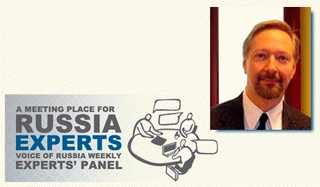First published on March 6, 2013 as part of the Voice of Russia's Expert's Panel
Freedom House has been described in contradictory ways. Some, like the Washington Post's Jennifer Rubin, call it an "independent and widely respected human rights monitoring organization", while others, like the current US Ambassador to Russia, Michael McFaul, once referred to it as one of the "American agents of influence" that has meddled in the internal affairs of other nations, in particular in Ukraine. If it is the latter, then surely it cannot also be the former.
But beyond the matter of Freedom House's objectivity, there is also the matter of its accuracy. Its rating of democracy, especially in the media, have been questioned by both scholars and media experts. They seem surprisingly out of date, seemingly unaware that 95% of the Russian media is in private hands, or that opposition channels like Dozhd are now available throughout all of European Russian on cable and attract some of the country's top political figures.
Freedom House remains blissfully ignorant of the Russian internet, which has more users than any other national domain in Europe, 99.7% of whom are active in social networks, making Russia the most socially engaged internet audience in the world. It used to be said that Russians had few news options because they got 80% of their news from state-controlled television. What that figure fails to mention is that only 2% rely on just one source for their news. These days, the universally available alternative is the internet which, for persons under 34, is more popular than television.
Even Putin's redoubtable critic, Masha Lipman, says that Freedom House's labeling of Russia as not free "may be misleading." "It would be wrong," she writes, "to regard Russia as a hard authoritarian regime that, much like the USSR, persecutes its citizens for disseminating unwelcome information."
Critics note at least three major problems with Freedom House's assessments of Russia. One is that its ratings make sweeping generalizations without reference to systematic, nationwide annual data on public activism and NGO activity. A second -- persistent negativism -- is the direct result of political choices made in the 1990s, when Russian democracy was rated over-generously. Since Freedom House cannot revise earlier estimations downward, it has little choice but to push Russia's rankings ever lower.
Finally, there is the gaping disparity between the trends that Freedom House reports and what Russian's themselves report. Just 20% say freedom of speech is restricted, compared with 45% who disagree; 75% say that, all in all, the results of the March 2012 presidential election should be trusted; and the number of those who say that Russia is either wholly or partially a democracy has actually increased from 37% in 2006 to 44% in 2012, while those who see less democracy has remained the same.
In sum, it behooves analysts to
treat such rankings with skepticism. While they are not entirely without value,
they are no substitute for a systematic and careful assessment of Russian
democracy, which is much more complex than Freedom House is willing to
acknowledge.






